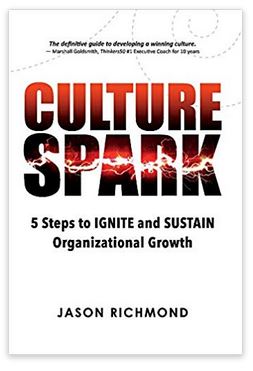By Jason Richmond, Chief Culture Officer and Founder at Ideal Outcomes
Do we need to rethink performance management? According to a recent Gallup survey, the answer is a resounding YES!
Some key data points that will open your eyes:
- Only two in 10 employees strongly agree that their performance is managed in a way that motivates them to do outstanding work.
- Only 30 percent of employees strongly agree that their manager involves them in goal setting. Yet, employees whose managers involve them in goal setting are 3.6 times more likely than other employees to be engaged.
- Only 21 percent of employees strongly agree they have performance metrics that are within their control.
Most of us would agree the purpose of performance management is to improve work quality, productivity, and key business outcomes. Clearly this traditionally time-consuming, often labor intensive, and potentially expensive process is not having the impact it needs to have.
Some other facts according to Gallup:
- 47 percent of employees receive feedback only a few times a year.
- Just 23 percent of employees agree the feedback they do receive is valuable. (And if you are thinking getting rare feedback is a good thing when the feedback is bad anyway, think again. Studies show bad feedback is actually better than none at all.)
- 14 percent of employees agree their performance reviews help them improve.
The solution really isn’t all that hard. As I discuss in my book Culture Spark: 5 Steps to Ignite and Sustain Organizational Growth, human resources, organizational leaders, and front-line managers simply need to see performance management as one aspect of ongoing employee communication. Yes, this means you have to talk to your employees more often. It is that simple.
What the data tells us is that employees want and need regular, continuous feedback to improve. Think about your favorite sports team. How successful will the coaches be if they give feedback to their players no more than once or twice a season? No professional athlete would ever be satisfied with such communication (and most of them make a lot more money than our employees do.)
What people want at work isn’t all that complicated. There are many studies that focus on the subject of motivation. One of my favorites is Project Oxygen, which was done at Google. All these studies basically tell us that people want:
- Their boss to be actively engaged in their success
- Their boss to care about their professional development
- Their boss to care about them as a person
- To see how their work contributes to the bigger picture
- Their impact and contributions to be recognized and rewarded
So, how do we make sure these five needs are met? First, managers need to speak one on one with employees once or twice a month. Your managers are going to say they don’t have time to do that. But these conversations do not need to be long—in fact, 15 minutes is optimal. 10 minutes – not bad, and it does not have to be in person. Today’s remote workforce makes that challenging to accomplish, but phone calls, Skype, Zoom, and many other tools make connecting so easy and many of these have no cost at all.
Organize a regular schedule and put it in on your calendar and the employees’ calendars. Work with your team to create a standard agenda. Keep it simple. Here are some questions I like to use when the conversation take place:
- What accomplishments are you most proud of since we last spoke?
- What were you unable to accomplish and why?
- What can I do to help with what you are working on now?
- What’s one thing you have realized you need to learn or get better at?
- What do you want to discuss?
From these five questions, you can build a robust conversation. Keep notes so that you can refer back to these conversations regularly. After three months, you will have developed a stronger relationship and gained significant insight into your employees. You can vary the questions, focusing on one or two per conversation, and, perhaps once a quarter, have a longer conversation in which you focus on all five.
If you see patterns in some of the answers from a majority of your employees, you can expand such discussion to a team meeting.
Approaching performance management as a communication strategy will build trust, allow you to gain insight into your employees quickly yet deeply, and help increase motivation.
Learn More
Want to get the most out of your team’s performance management? Discover how Oracle HCM Cloud can drive employee engagement today and download our white paper, Five Essentials for High-Performance Career Development.
You Might Also Like

